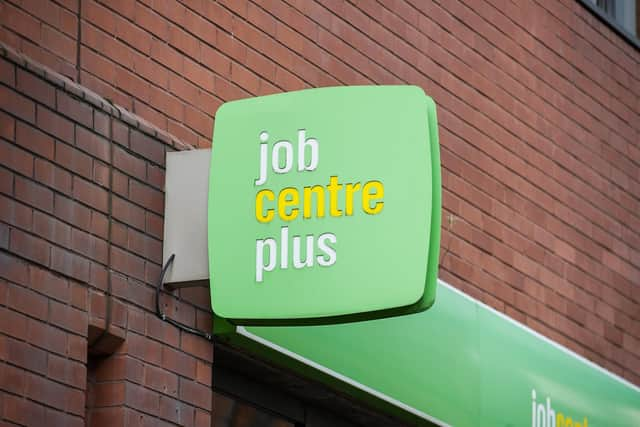Child poverty: Call for all employment law to be devolved to Scotland amid 'damaging experiences' warning
A new report says devolving all employment law to Scotland could help tackle child poverty and boost the economy.
The IPPR Scotland think-tank said the split responsibility between the UK and Scottish governments on employment means those looking to get a job have “damaging experiences”.
Advertisement
Hide AdAdvertisement
Hide AdThis new report suggested reform was needed as tens of thousands of adults and children were at risk of remaining trapped in poverty because there were not enough well-paid jobs to go around.


Philip Whyte, director of IPPR Scotland, said: “The current system is arguably failing countless people who are trapped between a devolved system that suffers from a lack of scale and a reserved system that is more often punitive than supportive.”
Scotland has two devolved employability programmes, No One Left Behind and Fair Start Scotland. However, they are struggling from a lack of funding and not reaching enough people to meet the Scottish Government’s employment targets.
However, the majority of jobseekers in Scotland will go through the Jobcentre Plus system, which is reserved to Westminster. In the final quarter of last year, only 3 per cent of Scottish jobseekers were enrolled in a devolved employment programme.
IPPR Scotland said this system left people feeling “unvalued” and “unsupported” as it pushed applicants to take any available job regardless of the person’s interest or capacity, and instilled a “constant fear” of being sanctioned.


The think-tank is now calling for a complete overhaul of employment law, including devolving all employment support powers, such as the Jobcentre Plus network, to the Scottish Parliament.
Mr Whyte said: “While devolved programmes show signs of success – but could yet do more – ultimately they are held back by responsibility being split across governments and a reserved Jobcentre system, which is more often focused on compliance rather than helping people reach their full potential.
Get the inside track on what’s happening in the world of Scottish politics with our daily newsletter
“A reformed system, through increased powers, would be the next natural step in delivering a system that is person-centric and works towards positive outcomes, so that more people can enter, stay and progress in meaningful work. That’s not just good for individuals and families, but also good for the economy.”
Advertisement
Hide AdAdvertisement
Hide AdOther measures the report suggests the Scottish Government could take include ensuring everyone is paid the real living wage – something the think-tank estimated would lift 70,000 people out of poverty.
Bringing unemployed people into part time and full-time work would lift an additional 90,000 and 110,000 respectively out of poverty.
IPPR Scotland predicted this could raise an extra £1.6 billion through higher tax and National Insurance contributions, and save over £600 million a year on social security spending.
David Linden MP, the SNP’s justice spokesman, said this reform needs to happen urgently.
He said: “With full control over employment law, the Scottish Parliament would be able to protect and extend workers’ rights - with the power to introduce progressive measures like a real living wage and increased statutory sick pay.
“If the Tories continue to dither on this issue, Sir Keir Starmer must confirm whether he’ll commit to devolving employment law if he gets the keys to Number 10 at the next election.
“If he fails to do so, as he has done previously, then it is clear that Westminster does not have Scotland’s best interests at heart.”
A spokesman for the UK Government said: “Poverty rates in Scotland are falling for adults and children compared to 2010, and we continue to help families with cost-of-living support worth an average of £3,800 per household.
Advertisement
Hide AdAdvertisement
Hide Ad“Work is the best way to secure financial security which is why we are investing billions through our back to work plan, increasing the national living wage, and cutting taxes for 29 million hardworking people.
“Jobcentres across Scotland continue to offer personalised support, reflecting people’s skills, circumstances and work history, and since April 2021 they have delivered over 19,000 on their job placements so even more people can secure long-term financial security through work.”
Comments
Want to join the conversation? Please or to comment on this article.